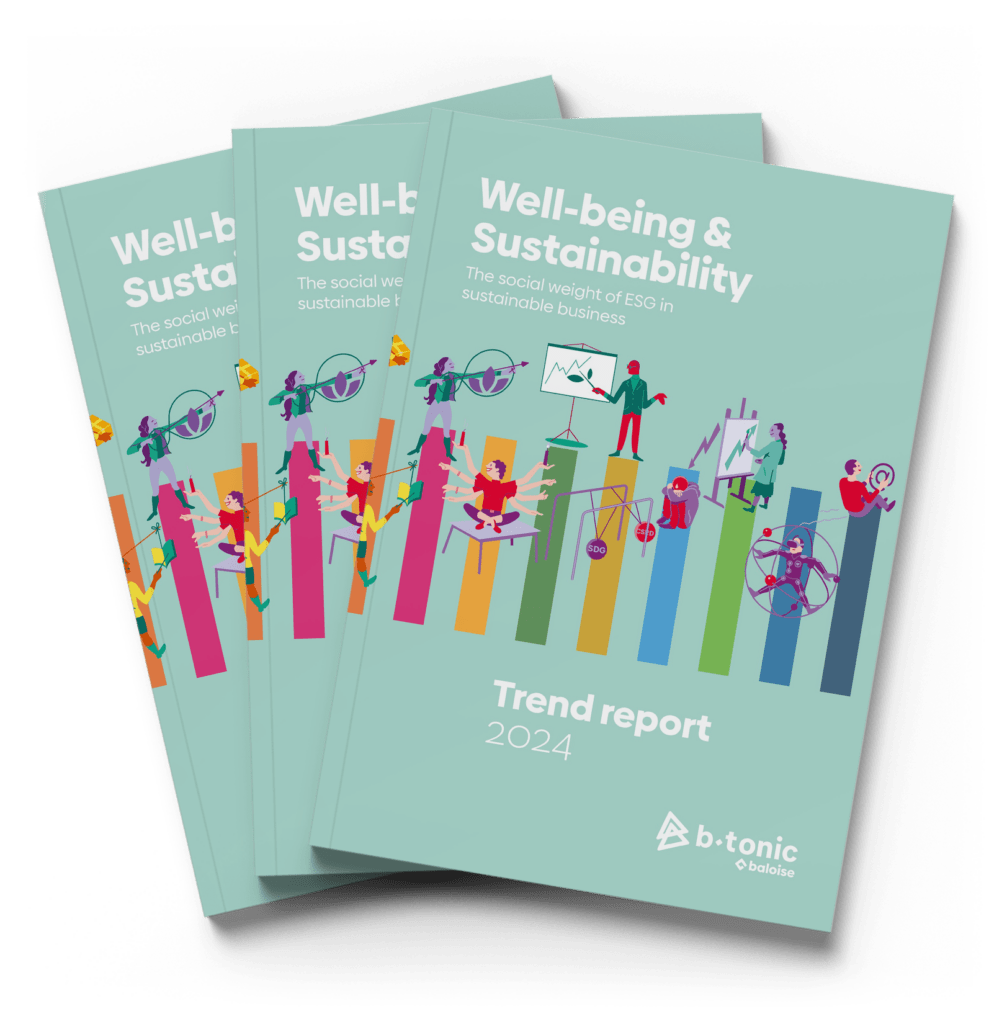Companies see growth but warn of more burnout and stress
Now that the aftermath of the corona crisis is behind us, the labour market is in full swing again. Most Belgian companies are confident about the future, looking for new ways to find and retain talent.. According to research for the Salary Guide byrecruitment specialist Robert Half there are 7 notable HR trends appearing for the second half of 2023. These are already some key figures:
- 44% of companies think it will be much harder to find employees than last year
- The fringe benefits most often awarded are a thirteenth month (62%), meal vouchers (62%), hospitalisation insurance (60%)
- 30% of companies look at a reduced working week to attract employees
- 8 in 10 Belgian employers is concerned about the impact of the heavy workload, burnout and competition on the retention of their employees.

1. War for talent flares back up
The future looks bright. A whopping 70% of Belgian companies look to the future with confidence. To support their growth, companies are putting people first more than ever and looking for new employees, both permanent and temporary. As the war for talent resumes, 44% of employers think it will be a lot harder to fill their vacancies than in the past year. In the current tight labour market, candidates often receive multiple offers simultaneously, giving them a great deal of freedom of choice. Companies need to get more creative to attract new talent.
2. Salaries under pressure
Inflation took a toll and, furthermore, labour costs are increasing. Therefore, 30% of employers are concerned that it will be difficult to provide salary increases to their employees. Increased competition is also putting pressure on attractive salary offers. Many companies are facing employees who demand higher wages after receiving an offer from another company. As a result, they are sometimes forced to make costly counteroffers to retain talent.

3. Fringe benefits become crucial
Another notable HR trend for the second half of 2023 is that a competitive salary is not the only asset to attract suitable candidates. Fringe benefits also play a significant role, especially now that the cost of living is increasing. The most commonly granted fringe benefits are a thirteenth-month bonus (62%), meal vouchers (62%), health insurance (60%), an annual bonus (57%), and a group insurance plan (56%). Other benefits added to the compensation package to make it more appealing include a financial allowance for remote work (33%), an allowance for an electric bicycle (33%), extended paternity leave (30%), or a mobile insurance plan (28%).
4. Flexibility is a must
If there is one gift the COVID-19 crisis has given employees, it is flexibility. And they do not want to give that gift back. To such an extent that the flexibility offered by an employer is often crucial in attracting and retaining employees nowadays. Today, most companies expect their employees to come to the office one or more days per week. Candidates do not have a problem with this, provided they receive sufficient flexibility in return. Do they not get this? In that case, there is a risk of the company losing talent, as candidates are not hesitant to reject an offer if the offered flexibility is too limited. About 22 percent of companies indicate that they are concerned about this issue.
Companies realise that offering flexibility is more important than ever. Therefore, they are also exploring new ways to work flexibly. Think of options such as partially or fully working from abroad (54%), implementing a shortened workweek (30%), or extending the weekly working hours in exchange for additional days off (28%).

5. Increased concern about burnouts
The combination of economic recovery and the shortage of suitable employees is leading to high workloads and increased stress in many companies. 8 in 10 Belgian employers is concerned about the impact of the heavy workload, burnout and heightened competition on the retention of their employees. They also find attracting new talent to be a challenge. In addition to an attractive salary package, they are increasingly focusing on growth opportunities, flexible work options, and a well-developed HR policy in the war for talent.
6. Human skills are becoming increasingly important.
In addition to technical skills, so-called “human skills” are becoming increasingly important. Companies even indicate that they are increasingly hiring individuals who align well with the company culture, even if they do not possess all the required skills. Motivation and team spirit are the two most important skills that employers look for. Closely followed by adaptability, leadership, and creativity. Companies are increasingly realising that it is not easy to find all these skills in a single candidate.
7. Importance of employer branding increases
Employer branding is steadily gaining more and more importance. Candidates are not only looking for the employer offering the highest pay and most benefits. They are also looking more and more for that cultural fit. They want to end up in a company with a fun work atmosphere and a company with values matching their personality. In light of the current tension on the job market, the importance of employer branding will only increase.
Do you want to know more about how a systematic well-being policy helps to hire and retain employees?
More info? Read the full research here.





